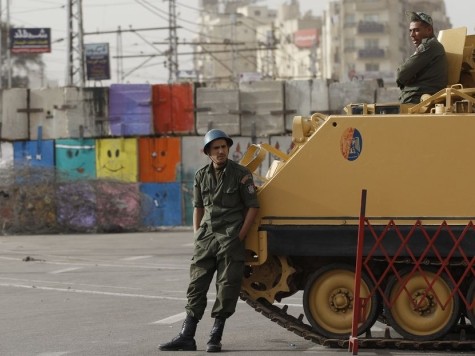A divided Egypt is being called to vote in a referendum Saturday on a new constitution that the secular opposition fears will be used by President Mohamed Morsi and his Muslim Brotherhood to usher in an Islamist interpretation of laws.
Protests over the draft charter, and over near-absolute powers that Morsi gave himself for two weeks to push it through, have failed to sway the president from his path.
The country’s powerful army, which ruled for 16 months following the ouster of president Hosni Mubarak early last year, has tried in vain to bring both sides together for talks to calm the crisis.
Fears of violence remain after violent clashes in Cairo last week in which eight people were killed and more than 600 injured.
Morsi has ordered the referendum to be split over two consecutive Saturdays because many judges are refusing to monitor voting.
The opposition National Salvation Front on Wednesday said it was urging its supporters to vote “no” — but also said it could call a last-minute boycott if the referendum was not brought back to just one day of voting, and if judges and independent observers did not monitor every polling station.
Mohamed ElBaradei, a former UN nuclear energy agency chief who heads the Front, tweeted: “Insistence on referendum in an explosive, polarized, chaotic & lawless environment is leading country to the brink.”
Egyptian citizens were divided over the referendum.
Mohammed Ibrahim Sayyid, in his 40s and sipping coffee in a cafe, felt differently.
Hamdi Imam, a street bookseller in his 50s, said: “I’m not going to vote because the constitution has blood on it… The Muslim Brotherhood will destroy the country.”
The outcome of the referendum was uncertain, though many analysts thought it likely to pass, given the Brotherhood’s efficiency in mobilising Egypt’s vast poorer segment of society.
The opposition sees the proposed charter, drafted by a panel dominated by Islamists, as weakening human and gender rights, bolstering the military and undermining the judiciary’s independence.
It fears its ambiguities and loopholes will push Egypt closer to a form of sharia law favoured by the more ultra-orthodox Islamists.
The opposition coalition said in a statement that “only one path exists to bring the country out of its current crisis, and that is for the president of the republic to assume his responsibilities by deciding to delay the referendum for two or three months and for serious national dialogue to be held so a consensus is reached on a draft constitution.”
The UN human rights chief, the United States, European nations and international watchdogs have also criticised the draft constitution and the way it was rammed through.
Washington, which provides $1.3 billion a year to Egypt’s military, has called for “restraint” in maintaining public order.
Saturday will see voters in 10 governorates called to polling stations, including in the two biggest cities of Cairo and Alexandria.
On December 22 it will be the turn of Giza, Port Said, Luxor and 14 other regions.
Egyptians abroad have already started early voting in embassies and consulates, the official MENA news agency reported.
Morsi has ordered the army to secure state institutions, giving them police powers of arrest until the referendum result is known.

COMMENTS
Please let us know if you're having issues with commenting.